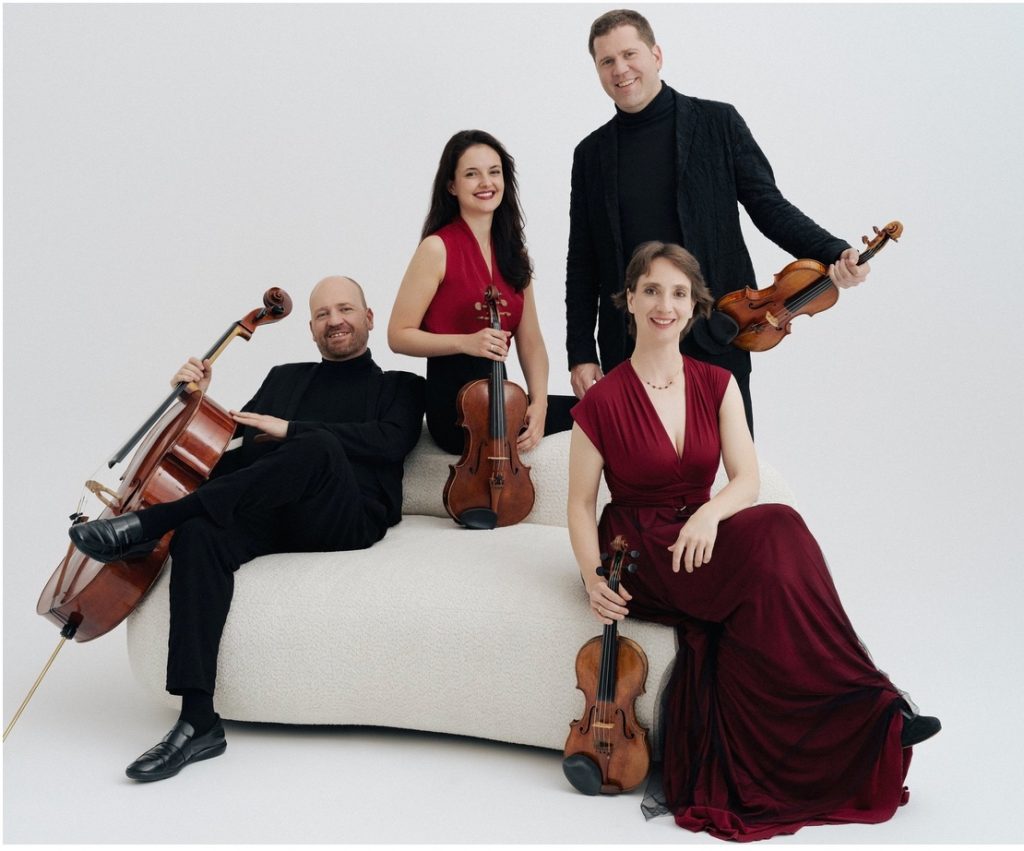by Daniel Hathaway
HAPPENING TODAY:

- Cuarteto Casals joins the Cleveland Chamber Music Society’s 75th anniversary celebration tonight at The Cultural Arts Center at Disciples Church,
- Garrick Ohlsson continues The Cleveland Orchestra’s Beethoven Piano Cycle with the Second & Fourth Concertos,
- Percussion professor Ross Karre and guest violinist Emily Cornelius play Stravinsky’s Histoire du soldat on a program that includes works by Kevin Day, Sophie Dupuis and Arvo Pärt in Stull Recital Hall at the Oberlin Conservatory.
For details of these and other upcoming events, visit our Concert Listings.
INTERESTING READ:
In a Guardian article, Jim Farber asks “was Nicky Hopkins, who played on over 250 albums, the greatest unsung pianist ever? “He helped shape classic songs by the Rolling Stones, the Who and the Beatles but his influence on music has been largely ignored.
“In the Middlesex home where he grew up, Hopkins played classical music so fluidly that, by his teens, he won a scholarship to attend London’s Royal Academy of Music. At the same time, his older sisters had fallen in thrall to rock’n’roll, drawn in particular to piano-based artists like Little Richard and Jerry Lee Lewis. By 16, Hopkins was studying classical music by day and rocking out at night in shows with a band led by the British eccentric Screaming Lord Sutch. What made his playing stand out, besides his dashing fingerings and depth of feeling, was his unlikely melding of influences. “Somehow this young man, born in a suburb of London who played classical music, had the ability to channel Chicago blues and Memphis rock’n’roll,” Dawson said. “He could sight-read but he could also rock.”
TODAY’S ALMANAC:
Among the composers who wrote their finales on this date: Quincy Porter (USA, 1966), Walter Piston (USA, 1976), Henryk Górecki (Poland, 2010), and John Tavener (England, 2013).
American composer and educator Quincy Porter studied in Paris with Vincent D’Indy, then returned to the U.S. to work with Ernest Bloch, whom he eventually assisted at Cleveland Institute of Music, and where he later became head of the Theory Department. He later taught at Vassar, became dean, then director of the New England Conservatory, ending his career at Yale, where he had begun his education as an undergraduate. Porter was a violist, and his 1948 concerto for that instrument, often hailed as his greatest work, was recorded by Cleveland Orchestra violist Eliesha Nelson along with his complete works for viola, a disc nominated for a Grammy Award.
Although Walter Piston was a celebrated academic who wrote four theoretical works and taught at Harvard from 1926 until 1960, he started his musical career playing piano in dance bands and saxophone in the Navy during World War I. One of his most engaging orchestral works is the suite he extracted from his ballet score, The Incredible Flutist. Watch the video of a performance by the Mostly Modern Orchestra, JoAnn Falletta, conducting, in Zankel Hall in Saratoga Springs, NY in June, 2023. Note the tango in 5/4 time (and the barking dog!)
Henryk Górecki came to prominence outside his native Poland only in the 1990s, chiefly through a recording of his Third Symphony, subtitled “Symphony of Sorrowful Songs,” that commemorated the victims of the Holocaust and featured soprano Dawn Upshaw. It sold more than a million copies worldwide. Listen to the work here in the recording with Upshaw and the London Sinfonietta, David Zinman, conducting.
Speaking of commercial successes, English composer John Tavener achieved wide renown for his religious works, many of which reflected his conversion to Orthodox Christianity in 1977. Among his best-sellers: The Protecting Veil (recorded by cellist Steven Isserlis), Song for Athene (sung at the end of the funeral for Princess Diana in Westminster Abbey in 1997), and the haunting little setting of William Blake’s The Lamb, inspired by his 3-year-old nephew and premiered at the 1982 King’s College Festival of Nine Lessons and Carols.
The Choir of Trinity College Cambridge included The Lamb in a 2013 tribute to Tavener, along with his Mother of God, Today the Virgin, Funeral Ikos, and Song for Athene. Stephen Layton conducted the ensemble at the European Festival of Church Music in Schwäbisch Gmünd, Germany in July 2013. Watch here.



